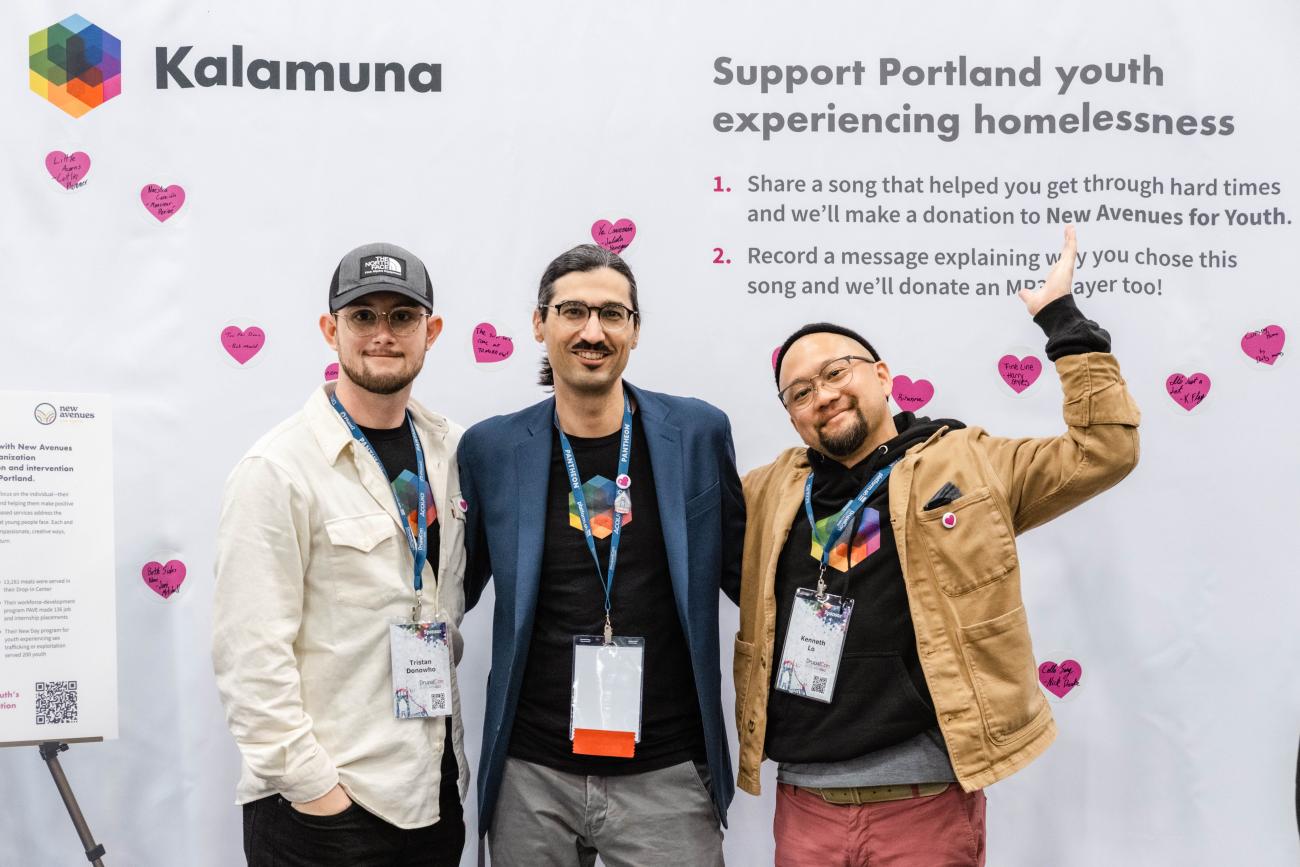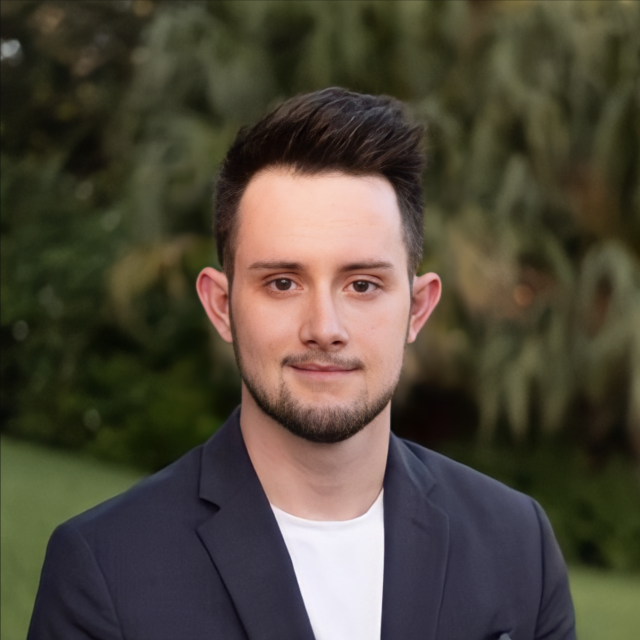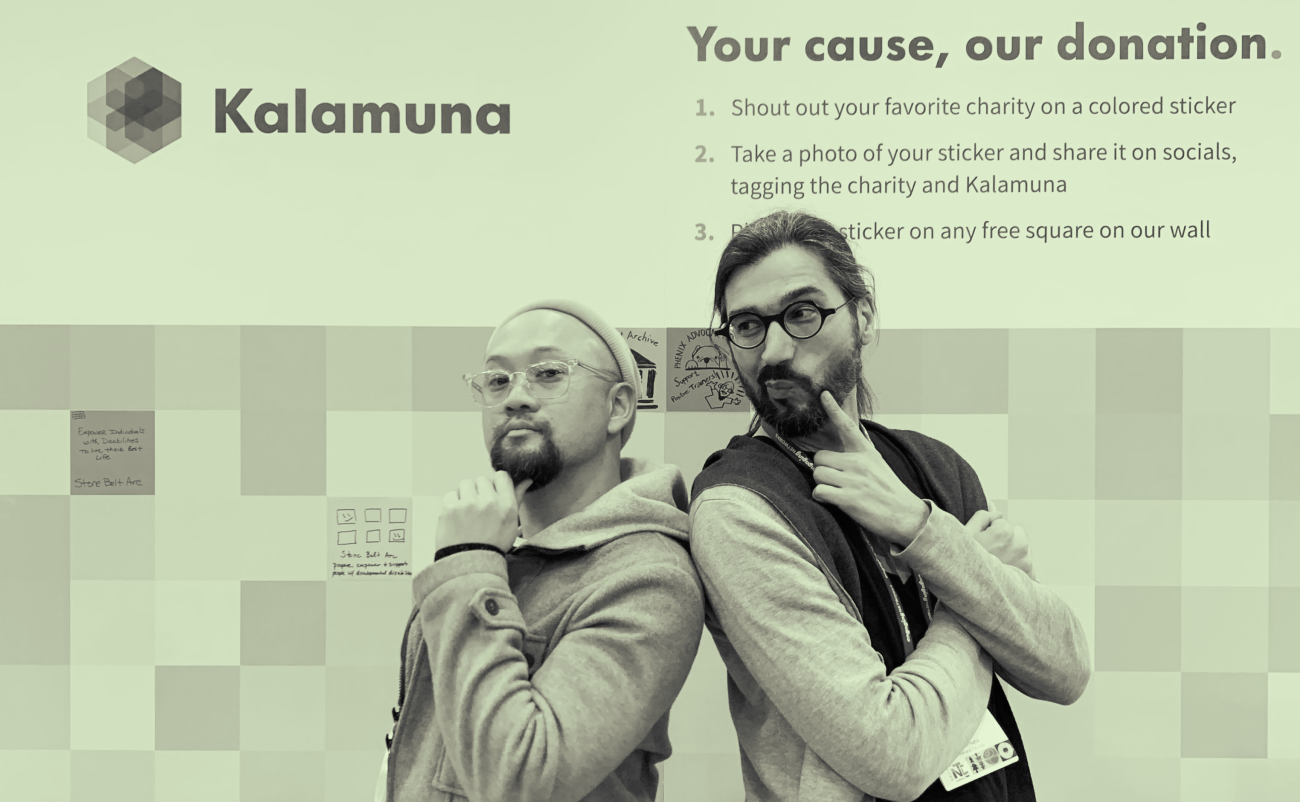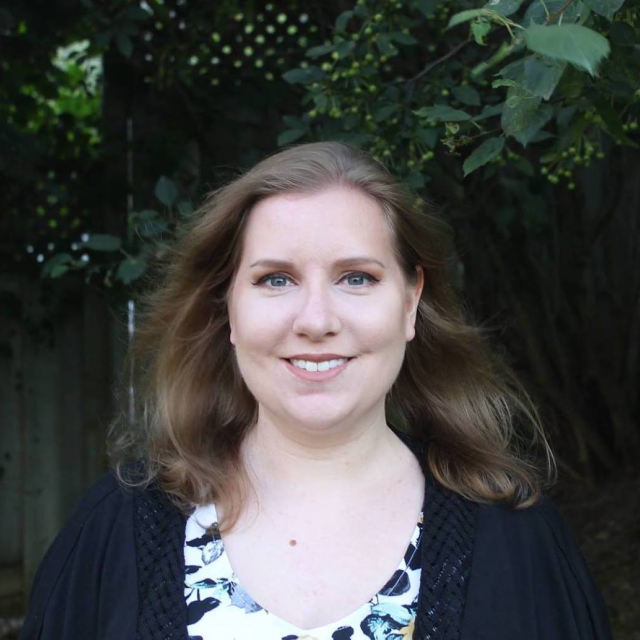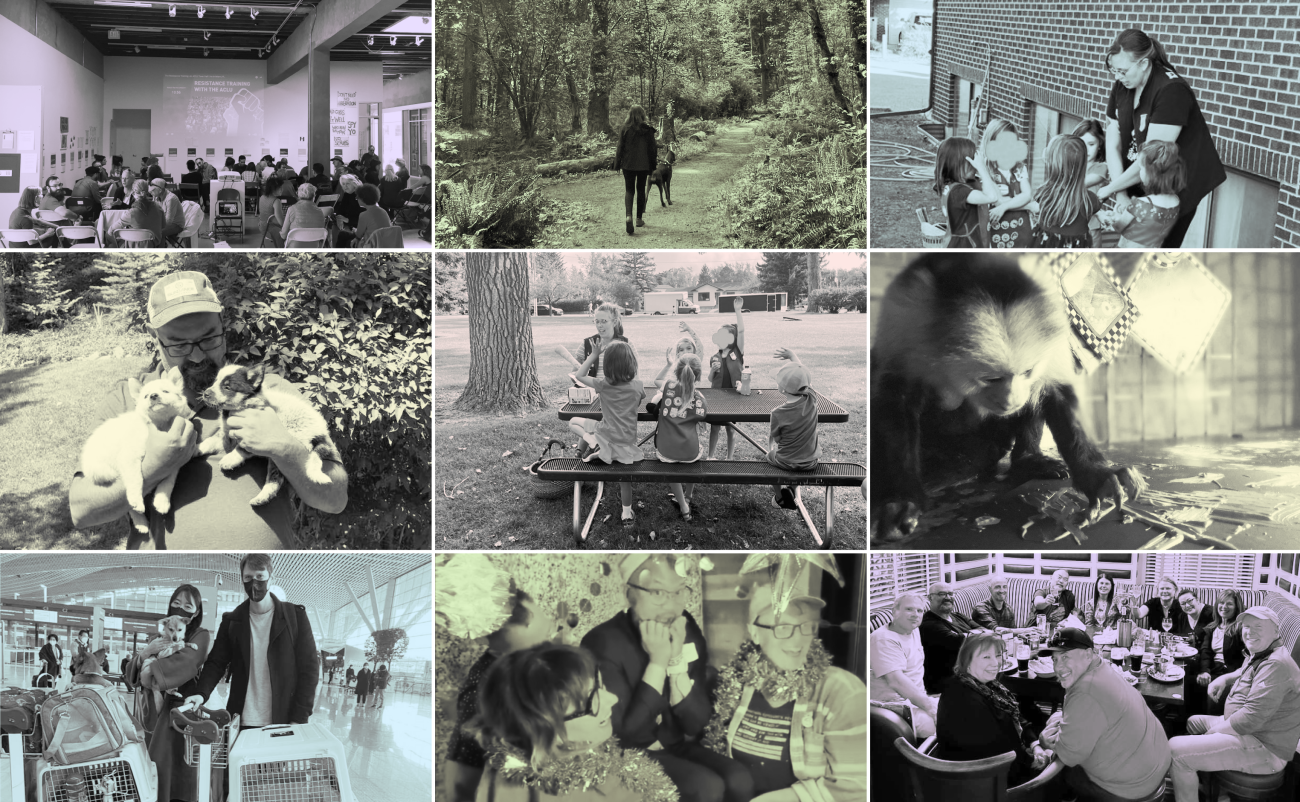
Who You Give to Says a Lot About Who You Are
Share
About a year ago, one of our friends, a businessman, started posting photos of himself with horses. We’ll call him Facebook Horse Gentleman. His horse posts seemed odd between his usual ones about company valuations, market trends, and football scores. Soon, his equine missives appeared more often and began to display more complex compositions: Facebook Horse Gentleman regarding 5 horses. Facebook Horse Gentleman with Other Horse People. Facebook Horse Gentleman showing off his new handlebar mustache. And recently, an announcement: Facebook Horse Gentleman accepting the position of executive director at a nonprofit dedicated to helping people adopt Clydesdale horses. This was a bit of a shock. But the news has begun to make sense: despite his more public interests in business, Facebook Horse Gentleman has, upon further reflection, always seemed the sort of sensitive person who’d act on his altruism. And now we know he’s an animal lover who’d been volunteering for a decade to care for the Clydesdales.
Facebook Horse Gentleman is not alone in manifesting parts of his personality through charity work. And neither is he alone in his good deeds being barely known by his friends; it turns out that many of us at Kalamuna have humbly kept our personal thing or volunteer work to ourselves until we queried Kalamuna members in an attempt to reveal heretofore unknown personal qualities. So, on this eve of Giving Tuesday, what can we learn about the Kalamuna team from their involvement with nonprofits? Read on to find out what our people reveal.
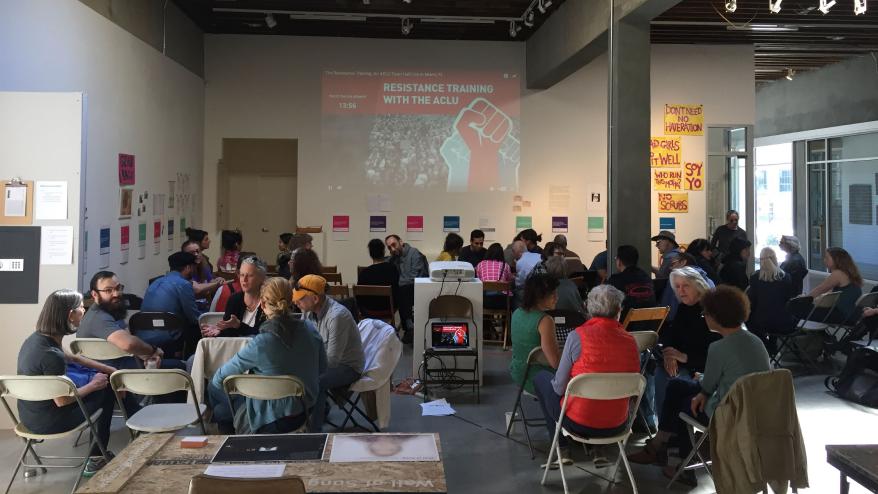
Ken Lo, Operations Manager
They say visual artists can get a bit weird from being hermetically sealed in their studios until they forget how to talk to people. Two decades ago, as a young painter pushing globs of colored mud around all day, I was lucky to find a community of like-minded obsessives at a San Francisco Bay Area nonprofit called Southern Exposure. I now look back and see that many of my closest friendships have been forged there through exhibiting, volunteering, or attending events. Over the years, I’ve donated art for their auction, doodled mini-masterpieces for their Monster Drawing Rally, and contributed muscles for various other events. The annual auction and fundraiser still feels like a gathering of extended family.
SoEx champions emerging and mid-career artists. Along with exhibition programming, they distribute grants and professional development opportunities like Creative Capital workshops or the Alternative Exposure Grant which awards money through the Andy Warhol Foundation to local arts initiatives. They encourage arts engagement in the surrounding community. For example, my collaborators and I hosted an ACLU meeting at SoEx in the early days of the Trump administration as part of an exhibit on social-political engagement. In the last decade, SoEx has focused on diversifying its curatorial board, impacting the diversity of artists being exhibited and the plurality of perspectives to be shared. Working outside of market forces allows SoEx to present some of the most daring, thought-provoking art to be found in the Bay Area. They’re an integral pillar in the local visual arts environment, exhibiting and nurturing artists on their way toward museum shows, professional practices, and art stardom.
Check out Southern Exposure on Instagram, Facebook, and X.
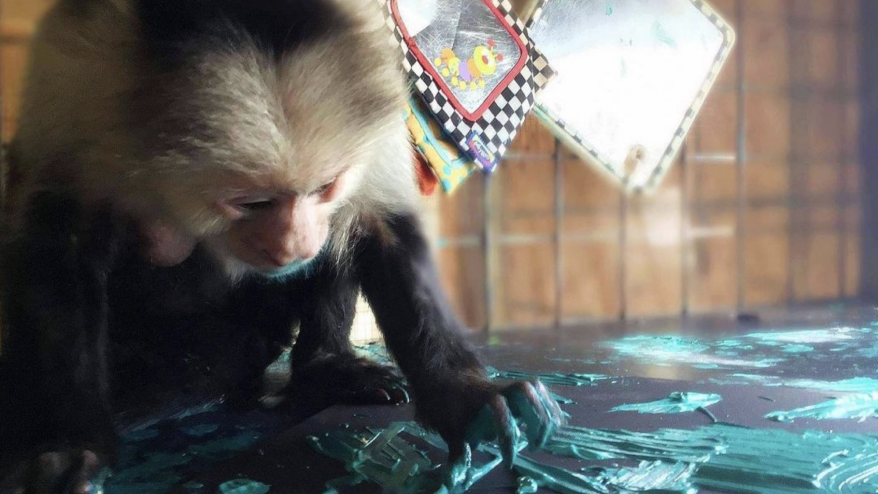
Michelle Balge, UX/UI Designer
I recently donated to Story Book Farm Primate Sanctuary in Sunderland, Ontario by purchasing a painting by one of their residents, a capuchin monkey named Pockets Warhol. This sanctuary is the only primate sanctuary in Ontario, and one of the ways they’ve been able to raise funds is through selling paintings by Pockets, an eager artist. He paints as part of his enrichment, doing a creative activity that he loves, and only paints if he wants to. People often say that we need to help people first and can worry about animals later, but I believe it’s important to put effort toward helping people AND animals now, as animals experience sadness, pain, happiness, compassion, and many other emotions too—ones we’d usually only associate with humans. Animals in sanctuaries are almost always physically and/or mentally harmed before arriving there, as I’ve learned in animal studies classes, and are unable to survive in the wild after living in captivity as they don’t have learned skills from others of their species. Sanctuaries give animals their best chance at living out the rest of their lives in happiness and peace.
Connect with the Sanctuary on Instagram and Facebook, and check out this video of Pockets Warhol creating a masterwork.
Marcus Kessler, Account Manager
I feel it’s imperative to help those who are hurting the most, show them there is kindness in the world, and that they aren’t alone. Homelessness has always mattered to me. I remember being a small child seeing unhoused people and feeling frustrated about the lack of support for them. So, I volunteer to pass out sandwiches and brown bag lunches to those in need in Oakland through CityTeam Oakland.
Check out CityTeam on Instagram.
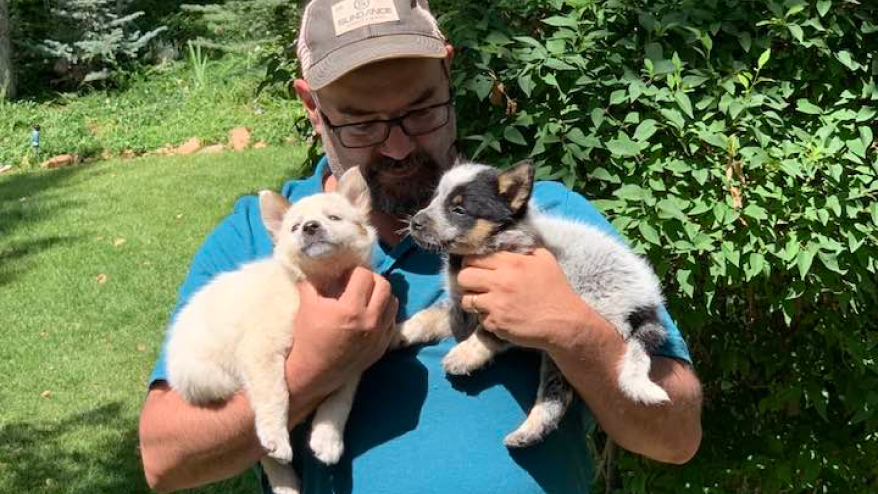
Jeff Hebert, Senior WordPress Developer
Dogs have always been a big part of our life. My wife’s dog, Wylie, saved her from at least one assault by a person on a trail, and from a series of break-ins in our neighborhood. Because of the debt she owes these creatures, my wife has dedicated herself to helping them out on a much wider and unexpected scale. She’s been a dog trainer for many years and has written two books about the subject, and found that too many trainers suffer from depression, anxiety, and feelings of hopelessness in the face of a culture that heavily favors punishment. For this reason she started a nonprofit organization called The Phenix Advocacy Center. It helps positive-reinforcement dog trainers with their mental health and professional development. I love that her group tries to make the world a better place for dogs and the humans who train them, so I built a website and resource center for them and help manage the tech end of things.
Learn more about The Phenix Advocacy Center on Facebook.
Bob McDonald, Senior Architect
I have children, and the thought that we are making the planet less and less livable for those coming after us is deeply concerning to me. Before I joined Kalamuna, I worked at the Institute for Global Environmental Strategies, a non-profit dedicated to climate change research and related policy recommendations. They also help government organizations at various levels prevent and remediate the effects of climate change. I could have worked for another entity, perhaps earning a higher salary, but I intentionally spent my time with this organization because I believe in what they do.
Check out the Institute for Global Environmental Strategies on Facebook.
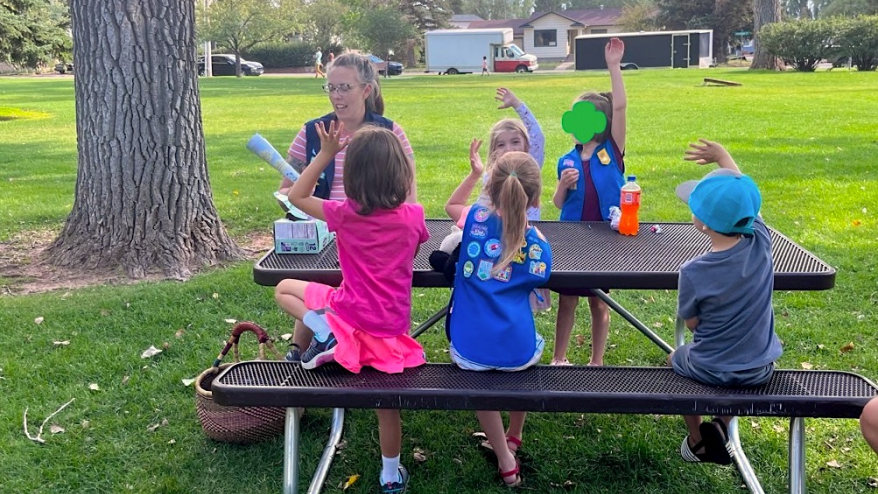
Jessica Schillinger, Senior UX/UI Designer
I was a Girl Scout for most of my growing up, and I wouldn’t be the person I am today if I hadn’t had that incredible experience. Two values of Girl Scouts stand out to me: be a sister to every Girl Scout and make the world a better place. These values shaped not only how I see myself in the world, but the intrinsic value of each person and their experiences. I learned how to always find ways to love my “neighbors” and that even the smallest kindness can make a big impact. Because of my history, I wanted to give back to my daughter and other girls in my community by providing those same spaces I had as a young person.
For the last few years, I’ve been a Girl Scout troop leader for a group of first and second grade girls in my town, as well as serving as the financial officer for our regional Girl Scout service unit. Our troop is a part of Girl Scouts of Montana & Wyoming, a council in Girl Scouts USA. As a troop leader, I create opportunities for our seven and eight-year-old girls to learn to be leaders in our community, learn new skills, and positively impact their world in big and small ways. Our girls have been involved in art, engineering, problem solving, outdoor skills, anti-bullying and advocacy, and global issues facing women and girls. Girl Scouts created so many opportunities for me to learn and grow—I’m proud to give back to them.
Connect with Girl Scouts USA through Instagram, Facebook, and LinkedIn.
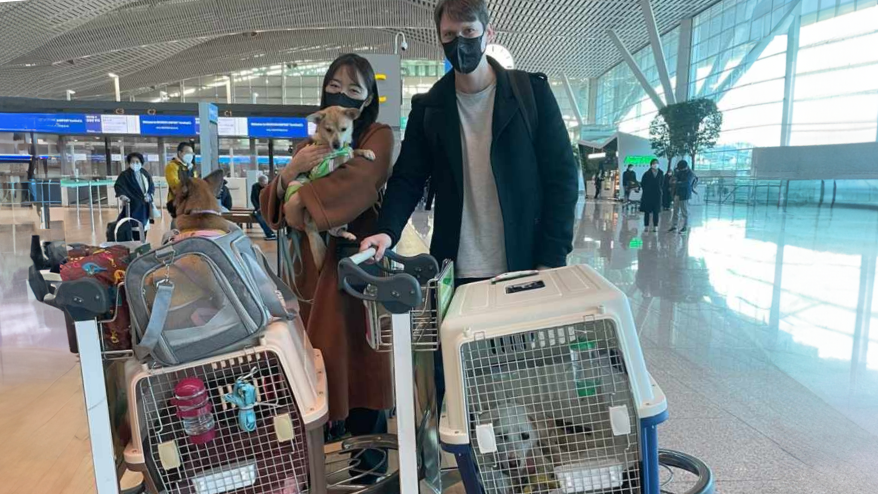
Eugene Park, Senior UX/UI Designer
Like many other countries, my birthplace of South Korea faces a challenge in its number of abandoned dogs and cats. These animals frequently end up confined in cramped, unsanitary cages which become their permanent homes, before being rescued by private organizations such as KARA (Korea Animal Rights Advocates). The state of government-run shelters is dire, with many dogs being euthanized due to the lack of space. And, unless dogs are young and small, adoption is rare in Korea. As a result, there is a growing need to seek homes for medium to large-sized dogs overseas, particularly in North America. For these reasons, I’ve volunteered and donated to KARA, as well as other dog rescue organizations in South Korea.
With each return trip from Korea, I accompany a few of these dogs to the Vancouver area, where they are embraced by families ready to offer them the loving homes they deserve. Adopting my current dog, Cheonsa, has made me more aware of the issue of abandoned dogs. He spent three years in a poorly-maintained city shelter before being rescued. Learning about his detailed story and the conditions in which he lived sparked my interest in the welfare and life-and-death issues facing dogs still living there, and it has motivated me to offer whatever help I can.
Connect with KARA on Facebook.
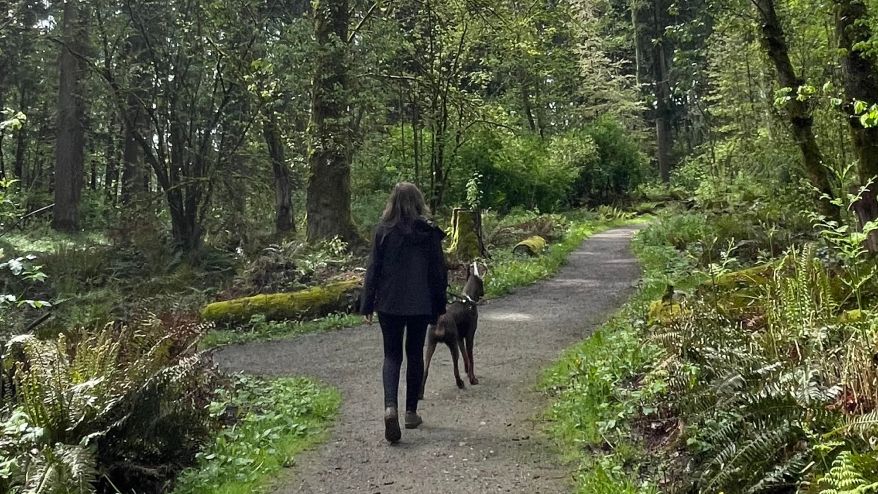
Alana Post, Project Manager
Moving to Washington last year motivated me to identify local organizations I could donate to, with an eye on orgs educating people about our beautiful, natural environment.
Washington Trails Association’s commitment to inclusion really stood out. They are forthright in surfacing “a history of underinvestment in particular communities, particularly for people of color, and structural inequality [which] creates high barriers for some individuals to participate in outdoor activities.” They uplift individuals and organizations focused on anti-racism and the outdoors, and highlight projects to make trails accessible. Exposure to nature has been linked to a host of benefits, including “improved attention, lower stress, better mood, reduced risk of psychiatric disorders and even upticks in empathy and cooperation” (American Psychological Association). For these and many other reasons, people who are most impacted by structural inequity absolutely must have access to nature, and receive long overdue respect from environmentally-focused organizations.
Check out the Washington Trails Association on Instagram.
Secret Altruism
Kalamuna works with mission-driven organizations to design and build websites with purpose. And actually, we don’t keep it a secret. Our team of seasoned experts puts technology at the service of great causes and the people who champion them, and we’re proud of the personal work they do to act on their values. Do you have a secret altruistic passion? Let us know!
Connect with Kalamuna on LinkedIn, Instagram, Facebook, Blue Sky, and Mastodon.


